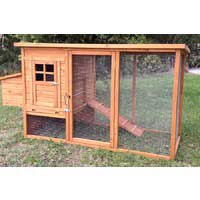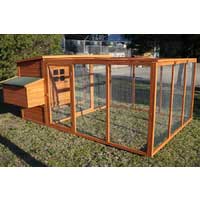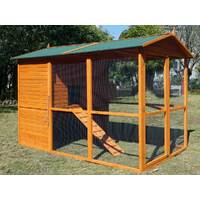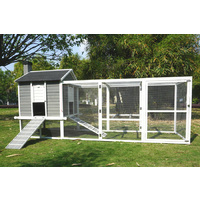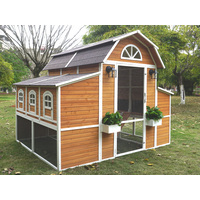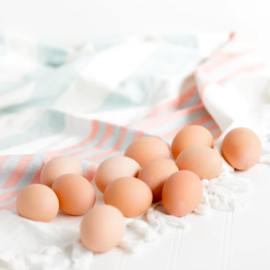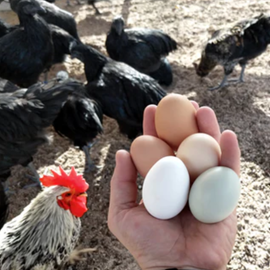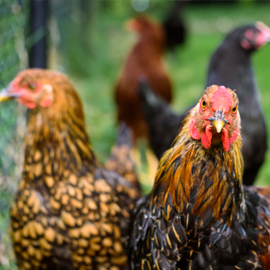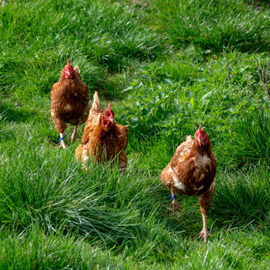Backyard chickens are kept for laying eggs as opposed to meat. This fact sheet will give you the ultimate guide to raising these chickens in the best way there is. 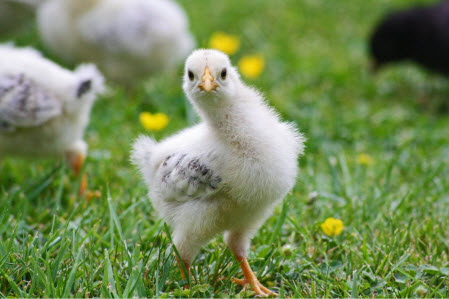
Which chicken breed to buy
One of the most critical decisions that you will make when rearing backyard chicken is which is the breed to get. There are hundreds of these chicken breed varieties and it is for this reason that it can be a challenge to decide which one is the best for you.
The first thing that will help you make this decision is to decide whether you want standard size chicken, the normal sized or the Bantams, the smaller chickens. Bantams weigh 0.5 -1kg and they are mostly kept for ornamental purposes. Therefore if you want to keep backyard chicken pets, this is the best choice for you.
These chicken do not lay eggs as much as the standard chicken. Their eggs are smaller than eggs of standard chicken as well. However, you can eat the Bantams eggs. One thing to note is that these Bantams chicken are susceptible to all predator types, even those that do not attack ordinary backyard chicken.
Breeds like Silkies, Sebrights, and Belgian Bearded D’Uccles are breeds that can only exist as Bantams. Other breeds exist as both Standards and Bantams. If you are not sure which is the best chicken breeds to rear between Bantams and Standards, you can have them both and make an informed decision. There are chicken breeders who mind about mixing chicken breeds, but this is not a significant issue.
How old should my chicken be at the time of purchase?
As a beginner, one is usually uncertain about what age the chicken should be at the time of purchase. You must be wondering whether you should go for the fully grown adult hens or the baby chicks. To clear this uncertainty, you must consider a number of factors.
These factors include; how much you are willing to spend, your purpose for the chicken, how much effort you are willing to put and your experience with the chicken. Any age that you select, there are advantages and disadvantages that come with each.
Day old chicks
These baby chickens are adorable, however, you need to spend more money on them than older chickens. You will also have to spend more time on them and experience is a requirement for this age. It is a rewarding experience, watching these chicks grow through time to full grown chicken.
Baby chicks are susceptible to various health conditions and they are delicate little creatures. For this reason, their brooding area should be well maintained. If your aim for keeping chicken is getting fresh eggs, you will have to wait for about 4-5 months before your baby chicks fulfill this purpose.
Pullets
These are the chicks which you buy at 10 weeks of age. These chicks do not need you to provide heat as they have a lot developed feathers. This chicken age is great for both novice and experienced poultry keepers.
This is because these chicks are more independent, bigger and stronger than baby chicks. In addition, they are young to develop a bond with and to easily tame. If your aim for keeping chicken was eggs, you will have to be patient for some more weeks before they start laying.
Point of lay
This is the common age that chickens are bought, especially by people whose main aim is eggs. This is the age where chickens are about to lay their first eggs. At this age, chickens are strong and hardy and therefore, no special care is required.
For this reason, these chickens are more expensive than baby chicks. At this age, you need to feed them with a diet that is protein packed and well balanced to help their bodies’ to start producing fresh eggs.
Laying/adult hens
These are birds which have produced eggs for at least a year or within their first year of lay. This is a bird which is well into its lay. Therefore, no patience is required here for fresh eggs. If your sole purpose to keep chicken is eggs, this is the best age to purchase.
How many chickens to buy
Are you asking how many chickens you need to buy as you start your poultry farming journey? This will depend on a number of factors. The two major factors to consider is space and egg requirement.
Space
You need to look at your backyard space to determine how many chickens you need. The space available and the amount of time you can let the chicks out will determine the size and number of chicken to buy.
Egg requirement
To know the number of chicken you need, consider the number of eggs consumed by your family every week. For a start, you can 3-5 hens in a suburban backyard. This is in consideration that a laying hen lays a single egg for every 25 hours. Therefore one hen will grace your kitchen with at least 6 eggs per week, hence 3-5 hens will give you 18-30 eggs a week.
What do chickens drink and eat?
If you want your chickens to lay a lot of eggs and to stay healthy, then you must feed them a balanced diet. Chickens, especially the grown ones eat almost anything, therefore, to keep deficiencies at bay, provide a wide food range. You should provide them with high-quality poultry pellets in their diet.
Scatter the pellets in their free ranging environment so that they can augment this diet. Fresh vegetables and fruits are also important. Table foods like rolled oat, bread, cooked pasta, whole grain rice, and legumes are great for backyard chickens.
You can supplement the diet with high calcium feeds especially for chicken which lay large egg numbers. Chicken should not feed on high fat or salt feeds, therefore, whatever you feed them, ensure that it has low fat and salt content. Ensure that your chickens have clean water available all the time. You should clear iced waterers in order to enhance access.
How to protect the chicken
Protecting your chicken should be a priority. This is because you do not want to come home one day and find feathers scattered in your backyard after your chicken were preyed on by the predators. These chickens depend on you for safety, housing, and health. In return, you get eggs, manure, entertainment and pest control among others.
You should first train your chicken to get into their house in the evening. Ensure that you close it up every single day. The other thing is to ensure that your chicken coop is some feet off the ground. This keeps of snakes, rats, and skunks from accessing the coop.
Secure the chicken coop & run with locked door to keep foxes, dogs & other predators from accessing your chicken house. Stop predators from digging their way into the coop with a bottom welded wire mesh. You should also cover the poultry run using a crisscrossing array of wires to discourage owls and hawks from interfering with your birds.
Have fun watching your chickens grown and enjoy the eggs when they comes.




